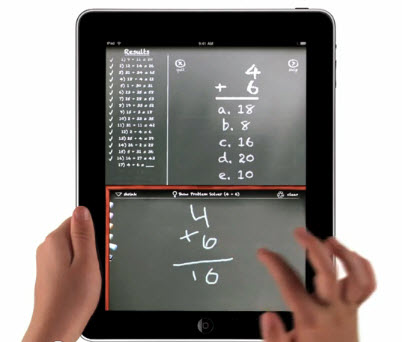 Online learning is hot. Since the for-profit schools began offering online degrees in the early 1990s, the more traditional bricks-and-mortar universities have followed. In the MBA market, online degree programs are now run by the likes of Carnegie Mellon, UNC’s Kenan-Flager Business School, Indiana University’s Kelley School of Business, and the University of Missouri’s Trulaske College of Business.
Online learning is hot. Since the for-profit schools began offering online degrees in the early 1990s, the more traditional bricks-and-mortar universities have followed. In the MBA market, online degree programs are now run by the likes of Carnegie Mellon, UNC’s Kenan-Flager Business School, Indiana University’s Kelley School of Business, and the University of Missouri’s Trulaske College of Business.
This disruptive innovation is also invading the traditional classroom as more professors now use online videos to teach elementary accounting and financial concepts so that class time can be devoted to more engaged and thoughtful discussions. Yet another innovation was rolled out the other day by UC-Berkeley’s Haas School of Business. Called a “mobile learning platform,” the iPad software being used by Haas Executive MBA students is meant to be at the core of their learning experience.
CHANGING THE WAY STUDENTS CONSUME THEIR COURSEWORK
“Similar to how tablets and mobile devices have changed the way we consume music and other media, this application changes how students consume their coursework, interact with their peers and the faculty,” said Adam Berman, who heads the school’s initiatives in learning technologies, in an interview with Poets&Quants.
“It is a one-stop shop in the sense that textbooks, learning materials and videos are all housed within this app. You can connect with students with a click of a button. It even allows you to save coursework on Google drive. It’s a place where note taking, peer comments, and class discussions all can take place in one place.” When a Haas professor assigned the reading of a case study, it is now available to read on a student’s iPad, among other things.
The platform features built-in functionalities and tools for streaming content via the Internet, course site creation, on-line lectures, assignment, test administering, grading, user publishing, live chat, peer-to-peer interaction, discussion forum, development of student portfolios, messaging, and news and web-content access. Initially, the school says, these will be applied to the following courses: Finance; Leading People; Marketing; and Building Trust based on Relationship; plus an additional four courses per semester to be added later.
MAKING COMMUNICATION BETWEEN STUDENTS AND FACULTY EASIER AND MORE EFFICIENT
Berman says that the platform greatly enhances student-to-student communication and student-to-instructor communication. Haas students will be able to access the platform’s mobile discussion boards and social learning tools. The mobile platform allows for audio, video, and essay creation. It also integrates key iPad features like Notifications and Facetime.
“This is a way to make the learning experience much richer,” enthused Berman. “We are big believers that we are in the first inning of what is going to be possible. We are really excited about some of these technologies and how it will transform learning for our students. But it has to be done right and it’s very easy to do wrong. Most digital education is pretty weak. The potential is to customize the learning for each student based on how they learn, what they know, and don’t know. There is some really interesting potential.”
Haas began piloting the use of the iPad software six weeks ago with some 60 incoming Executive MBA students. The app was built by EmpowerU, a startup founded by Steve Poizner and Sherry Lansing. It is the only app that links directly with the iPad and a learning management system called Canvas. Oringlaly developed by EmpowerU for UCLA’s extension, this is the first time a business schools has adopted the technology.
‘A LEARNING CURVE FOR BOTH STUDENTS AND FACULTY’
It’s early days and the pilot has gone fairly smoothly so far. “With any pilot we have had our ups and downs,” says Siu Yung Wong, director of academic affairs. “There is a learning curve for both faculty and surprisingly students. EMBA students tend to be on the older side and more advanced in their careers so getting used to the iPad itself took awhile. Having said all that, I think the response has been fairly positive. People love having a tool where they can use the iPad as a learning device. And everyone likes the idea of having fewer textbooks to carry.”





Questions about this article? Email us or leave a comment below.